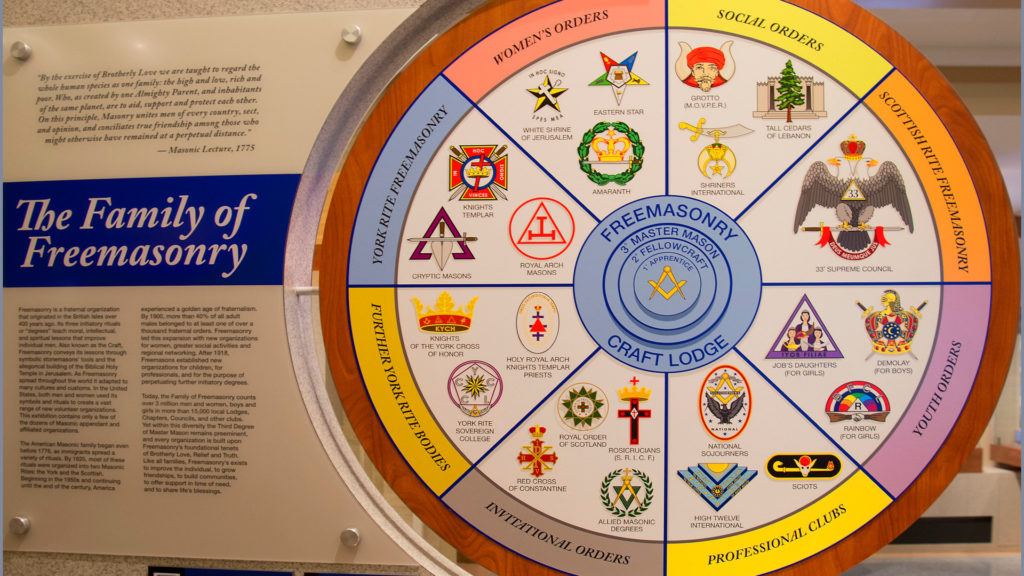Three Aspects of the Masonic Fraternities Lifeway:
J04 Masonic Fraternities
Organization promoting moral and ethical principles, personal development, and brotherhood through rituals and ceremonies.
Masonic Fraternities constitute longstanding and influential fraternal organizations in the United States. Rooted in centuries-old traditions, Freemasonry is a system of moral, philosophical, and symbolic teachings that emphasize the development of character, ethical conduct, and personal growth among its members. While not a religious institution, it often intersects with elements of Hermeticism and Rosicrucianism, as many of its rituals, symbols, and teachings have been influenced by these esoteric traditions.

Significant Role in American History
Freemasonry has played a significant role in American history and culture. The Founding Fathers, including George Washington and Benjamin Franklin, were prominent Masons, and the principles of Freemasonry, such as liberty, equality, and fraternity, are reflected in the founding documents of the United States. Throughout its history, Freemasonry has attracted individuals from diverse backgrounds and professions, providing a unique space for social, moral, and intellectual exchange.
Influenced by Hermeticism, Rosicrucianism and Gnosticism
Hermeticism and Rosicrucianism have left a notable imprint on Freemasonry, particularly in its symbolism and philosophical underpinnings. Hermetic ideas, which revolve around the pursuit of spiritual wisdom and the unity of the spiritual and material worlds, align with Freemasonry's emphasis on moral and intellectual development. The concept of gnosis, or inner knowledge, often found in Hermeticism, resonates with Freemasonry's quest for self-improvement and self-discovery. Likewise, Rosicrucianism, with its focus on spiritual enlightenment and alchemical transformation, has influenced Masonic rituals and symbolism. The search for hidden wisdom and the transmutation of the human soul are themes that parallel the aims of both Rosicrucianism and Freemasonry. The rose and cross, prominent symbols in Rosicrucianism, have found their way into Masonic iconography.
Levels of Initiation in Moral and Symbolic Teachings
In terms of organizational structure, Masonic lodges are the primary units of Freemasonry, and they serve as places for members to gather, conduct rituals, and engage in fraternal activities. Lodges often have degrees or levels of initiation, which involve the presentation of moral lessons and symbolic teachings. These rituals and degrees incorporate elements from Hermetic and Rosicrucian traditions, further weaving these influences into the fabric of Freemasonry.
Summary
In summary, the Masonic Fraternities are longstanding and influential fraternal organizations with a deep history and a focus on moral and personal development. While not religious, Freemasonry draws inspiration from Hermeticism and Rosicrucianism, incorporating their symbolism and philosophical ideas into its teachings and rituals.

| TOP TEN BASIC TRADE AREAS | |
| 1 | New York, NY |
| 2 | Philadelphia, PA-Wilmington, DE-Trenton, NJ |
| 3 | Pittsburgh, PA |
| 4 | Los Angeles, CA |
| 5 | Boston, MA |
| 6 | Cincinnati, OH |
| 7 | Dallas-Fort Worth, TX |
| 8 | Chicago, IL |
| 9 | Atlanta, GA |
| 10 | San Francisco-Oakland-San Jose, CA |
